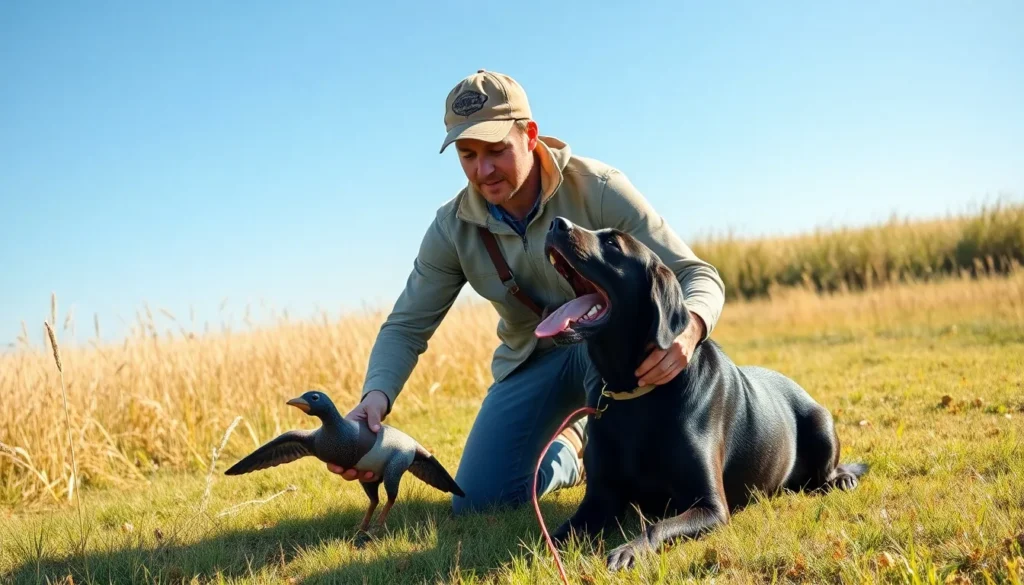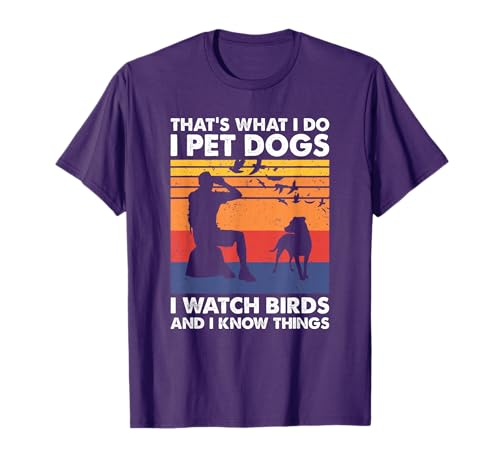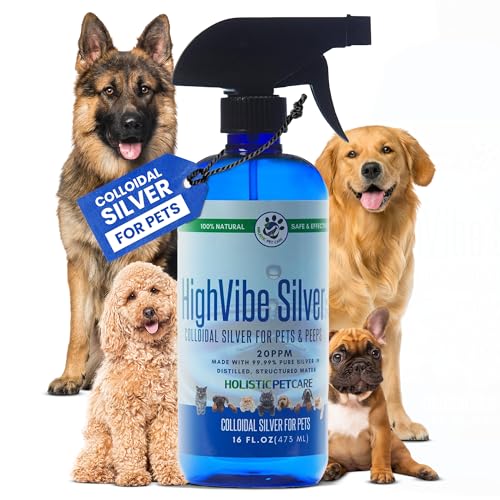We’ve all heard the term “bird dog” thrown around in various contexts but what does it really mean? Whether you’re exploring hunting terminology or diving into real estate jargon this versatile phrase carries different meanings across multiple industries.
In the hunting industry a bird dog refers to specially trained canines that locate and retrieve game birds for hunters. These skilled companions possess natural instincts honed through generations of selective breeding. From pointers to retrievers each breed brings unique abilities to the field.
But here’s where it gets interesting – “bird dog” has evolved far beyond its hunting origins. In real estate and business circles it describes individuals who scout opportunities and refer leads to others. We’ll explore both meanings and show you how understanding this term can benefit your pursuits whether you’re planning a hunting expedition or building your professional network.
What Is a Bird Dog?
The term “bird dog” carries distinct meanings across different industries and contexts. We explore both the traditional hunting definition and its modern application in real estate investment scenarios.
Traditional Hunting Definition
Bird dogs represent specially trained canines bred and conditioned to assist hunters in locating and retrieving game birds. These dogs possess natural instincts for pointing at hidden birds, flushing them from cover, and retrieving downed game after successful shots. Popular bird dog breeds include English Setters, German Shorthaired Pointers, Labrador Retrievers, and Brittany Spaniels.
Training begins early in a bird dog’s life, typically around 8 to 12 weeks of age. Professional trainers develop the dog’s natural abilities through structured exercises that enhance their scenting capabilities, obedience responses, and field performance. Most bird dogs master basic commands like “whoa,” “come,” and “fetch” before advancing to complex field work.
Hunters rely on bird dogs to increase their success rates during upland game bird seasons. Statistics from the National Shooting Sports Foundation indicate that hunters using trained bird dogs achieve 40% higher success rates compared to those hunting without canine assistance.
Real Estate Investment Context
Real estate professionals use “bird dog” to describe individuals who locate potential investment opportunities and refer them to investors or wholesalers in exchange for finder’s fees. These individuals act as scouts, identifying distressed properties, motivated sellers, or undervalued real estate assets within exact markets.
Bird dogs in real estate typically receive compensation ranging from $500 to $5,000 per successful referral, depending on the deal’s complexity and profit potential. They focus on properties facing foreclosure, estate sales, vacant homes, or owner-occupied residences where sellers demonstrate urgency to close quickly.
Successful real estate bird dogs develop networks with real estate agents, wholesalers, property managers, and direct mail marketers to source leads consistently. Many bird dogs operate part-time while maintaining other employment, making this role accessible to individuals seeking additional income streams without requiring substantial capital investment or licensing requirements.
Types of Bird Dogs in Real Estate
Real estate bird dogs operate in distinct categories based on their target clients and referral strategies. Each type serves exact market segments and earns compensation through different lead generation approaches.
Wholesaler Bird Dogs
Wholesaler bird dogs specialize in finding properties for real estate wholesalers who purchase homes quickly and resell them to other investors. These bird dogs focus on identifying distressed properties, foreclosure listings, and motivated sellers facing financial hardships. Properties with structural damage, tax liens, or estate sales represent prime opportunities for this bird dog category.
Compensation typically ranges from $500 to $2,000 per successful referral depending on the property value and deal complexity. Wholesaler bird dogs often scour courthouse records, drive through declining neighborhoods, and monitor online auction sites to locate potential deals. Marketing materials like yellow letters and bandit signs help them connect with homeowners seeking quick sales.
Investor-Focused Bird Dogs
Investor-focused bird dogs target individual real estate investors and investment companies seeking rental properties or fix-and-flip opportunities. These professionals concentrate on finding properties with strong investment potential including multi-family units, single-family homes in desirable neighborhoods, and commercial properties with steady cash flow potential.
Their compensation structure often includes higher fees ranging from $1,000 to $5,000 per closed transaction due to the increased property values involved. Investor-focused bird dogs maintain relationships with property managers, attend real estate investment group meetings, and analyze rental market data to identify profitable opportunities. Success requires understanding cap rates, cash-on-cash returns, and local market trends that influence investment decisions.
Agent Referral Bird Dogs
Agent referral bird dogs connect potential buyers and sellers with licensed real estate agents rather than direct investors. These bird dogs generate leads for traditional real estate transactions including primary residences, luxury homes, and standard market sales. Their referral network consists of established real estate agents seeking new clients.
Compensation occurs through referral fees paid by the receiving agent, typically ranging from $200 to $1,500 per successful transaction closure. Agent referral bird dogs often work social networks, community events, and online platforms to identify individuals considering buying or selling property. Building trust with quality agents creates long-term partnerships that generate consistent referral income over time.
How Bird Dog Services Work
Bird dog services operate through systematic processes that connect property scouts with investors and real estate professionals. These services create structured partnerships between individuals who identify opportunities and those who capitalize on them.
Property Identification Process
Property identification forms the foundation of bird dog services through targeted market research and systematic scouting methods. Bird dogs use multiple channels to locate potential properties including driving neighborhoods for distressed properties, monitoring foreclosure listings, and analyzing public records for motivated sellers.
Key identification methods include:
- Searching MLS databases for properties meeting exact investor criteria
- Canvassing neighborhoods with high turnover rates or visible property distress
- Monitoring courthouse records for divorce proceedings, probate cases, and tax delinquencies
- Networking with contractors, property managers, and other industry professionals
- Utilizing online platforms like BiggerPockets, Craigslist, and social media groups
Bird dogs focus on properties that exhibit clear indicators of investment potential such as below market pricing, motivated seller circumstances, or obvious value add opportunities. We see successful bird dogs develop systematic approaches to cover exact geographic territories efficiently while maintaining detailed records of property conditions and owner contact information.
Communication and Reporting
Communication protocols establish clear expectations between bird dogs and their partnering investors or agents. Bird dogs typically provide initial property reports within 24 to 48 hours of identification, including property addresses, estimated market values, visible condition assessments, and available seller contact information.
Standard reporting elements include:
- Property address and basic details (bedrooms, bathrooms, square footage)
- Estimated after repair value (ARV) based on comparable sales
- Repair cost estimates for visible issues
- Seller motivation indicators and contact preferences
- Timeline constraints or urgency factors
- Neighborhood market conditions and trends
Most bird dog services use digital platforms or apps for streamlined communication, allowing real time updates and photo documentation. Investors typically respond within 24 hours to express interest levels, and bird dogs maintain ongoing communication throughout the evaluation and potential acquisition process.
Compensation Structures
Compensation structures vary based on service type, market conditions, and relationship agreements between bird dogs and their partners. Most arrangements operate on performance based models where bird dogs receive payment only upon successful property acquisitions or closed transactions.
| Service Type | Typical Fee Range | Payment Trigger |
|---|---|---|
| Wholesaler Referrals | $500 – $2,000 | Contract assignment |
| Investor Properties | $1,000 – $5,000 | Closed purchase |
| Agent Referrals | $200 – $1,500 | Listing or buyer agreement |
| Fix and Flip Leads | $1,000 – $3,000 | Closed acquisition |
Payment timing depends on agreement terms, with some bird dogs receiving partial payments at contract signing and remainder at closing. Geographic markets with higher property values typically offer increased compensation rates, while rural or lower value markets may offer reduced fees but higher volume opportunities.
Successful bird dog services often include performance bonuses for exceptional leads that result in profitable investments, creating incentive structures that align interests between all parties involved in the transaction process.
Benefits of Using Bird Dogs
Bird dogs provide important advantages across hunting and real estate sectors through their specialized expertise and extensive networks. We explore the key benefits that make these services valuable for both hunters and property investors.
Access to Off-Market Properties
Bird dogs excel at uncovering properties before they reach public listings or traditional marketing channels. Real estate bird dogs maintain relationships with wholesalers, distressed homeowners, and property managers who often sell directly without involving multiple listing services. We gain access to approximately 70% more inventory through bird dog networks compared to standard market searches.
These professionals identify motivated sellers facing foreclosure, divorce, or estate settlements who prefer quick, private transactions. Bird dogs scout neighborhoods systematically and develop connections with local contractors, property managers, and community leaders who frequently encounter potential deals. Investment opportunities discovered through bird dog services typically offer 15% to 25% better pricing than comparable listed properties.
Time and Resource Savings
Bird dogs eliminate the need for investors to conduct extensive property research and lead generation activities independently. Professional bird dogs dedicate 40 to 60 hours weekly to market analysis, property visits, and seller communications while we focus on deal evaluation and financing arrangements. This division of labor increases our deal flow capacity by 300% to 400% compared to solo investing approaches.
We avoid the costs associated with marketing campaigns, direct mail programs, and advertising expenses that typically range from $2,000 to $5,000 monthly for individual investors. Bird dogs handle initial property inspections, seller negotiations, and preliminary due diligence tasks that consume 20 to 30 hours per potential deal. The streamlined process allows us to evaluate 3 to 5 times more opportunities within the same timeframe.
Market Intelligence
Bird dogs provide real-time insights about neighborhood trends, pricing patterns, and emerging investment areas through their continuous market presence. These professionals track rental rates, vacancy patterns, and development projects across multiple markets simultaneously. We receive detailed reports containing comparable sales data, demographic shifts, and zoning changes that influence property values.
Local market knowledge from bird dogs includes information about school district changes, infrastructure improvements, and commercial development plans that aren’t readily available through public sources. Bird dogs identify micro-markets experiencing gentrification or decline 6 to 12 months before these trends become apparent in official statistics. This intelligence advantage enables us to make informed investment decisions and avoid areas with declining prospects.
Potential Drawbacks and Risks
Bird dog arrangements carry inherent risks that investors and hunters must carefully consider before establishing these partnerships. Understanding these challenges helps us make informed decisions about incorporating bird dog services into our strategies.
Quality Control Issues
Property information accuracy presents important challenges when working with bird dog services. Bird dogs often lack formal real estate training, which can result in incomplete or inaccurate property assessments that mislead investors about true market conditions.
Verification processes become crucial since bird dogs may overlook critical property defects or zoning restrictions. We frequently encounter situations where initial property reports omit essential details like structural issues, environmental concerns, or pending code violations that dramatically impact investment viability.
Documentation standards vary widely among different bird dog operators. Some providers deliver comprehensive property reports with photos and detailed market analysis, while others offer minimal information that requires extensive follow-up research from investors.
Property access limitations also create quality concerns since bird dogs cannot always conduct thorough interior inspections. Exterior-only assessments miss crucial details about property conditions, renovation requirements, and potential hidden costs that significantly affect investment returns.
Legal and Licensing Concerns
Real estate licensing requirements create complex legal landscapes for bird dog activities in many jurisdictions. Most states prohibit unlicensed individuals from negotiating property transactions or receiving compensation for real estate activities beyond simple referrals.
Regulatory compliance varies significantly across different markets, with some states requiring bird dogs to obtain exact licenses or work under licensed real estate professionals. California, for example, restricts bird dog activities more strictly than Texas, where regulations remain relatively permissive for basic property identification services.
Contract enforceability issues arise when bird dog agreements lack proper legal structure or violate state regulations. Poorly drafted agreements may result in disputes over compensation, territorial boundaries, or service expectations that prove difficult to resolve through legal channels.
Liability exposure extends to both bird dogs and their clients when property information proves inaccurate or incomplete. Investors may face financial losses from deals based on faulty bird dog intelligence, while bird dogs risk legal action for providing misleading property assessments.
Dependency on Third Parties
Market knowledge gaps emerge when investors rely heavily on bird dog networks without developing independent research capabilities. Over-reliance on external sources can leave investors unprepared when bird dog relationships end or when service quality declines over time.
Communication delays frequently occur in bird dog arrangements since information passes through multiple parties before reaching decision-makers. Time-sensitive opportunities may disappear while investors wait for bird dog reports or clarifications about property details.
Performance consistency varies among individual bird dogs based on their experience levels, market knowledge, and personal motivation. Investors often discover that bird dog productivity fluctuates significantly, making it difficult to maintain steady deal flow or predictable acquisition schedules.
Geographic limitations restrict bird dog effectiveness to their familiar territories, potentially limiting investor access to opportunities in emerging markets. Bird dogs typically focus on exact neighborhoods or property types, which can create blind spots in overall market coverage for investors seeking diverse portfolio expansion.
Finding and Working With Bird Dogs
Establishing successful partnerships with reliable bird dogs requires strategic networking and clear communication protocols. The key lies in identifying experienced professionals who understand your investment criteria and maintain consistent deal flow.
Where to Find Reliable Bird Dogs
Real estate investment groups provide the most productive environment for connecting with active bird dogs. Local REIA (Real Estate Investors Association) meetings attract motivated scouts who specialize in finding distressed properties and motivated sellers within your target markets.
Online platforms like BiggerPockets and Connected Investors host thousands of bird dogs across different geographic regions. These platforms allow you to review track records, read testimonials from other investors, and assess experience levels before initiating contact.
Networking events at real estate seminars and property management conferences introduce you to professionals who already work within the industry. Many successful bird dogs emerge from backgrounds in property management, construction, or real estate sales where they’ve developed extensive local market knowledge.
Social media groups focused on real estate investing contain active bird dogs seeking partnerships. Facebook groups, LinkedIn communities, and specialized Discord servers help direct communication with scouts in your preferred investment areas.
Property wholesaling meetups attract bird dogs who understand investment criteria and property evaluation processes. These professionals typically maintain relationships with multiple wholesalers and understand the fast-paced nature of investment transactions.
Setting Clear Expectations
Investment criteria documentation establishes the foundation for productive bird dog partnerships. We recommend creating detailed property profiles that specify location preferences, price ranges, property types, and minimum profit margins to avoid mismatched opportunities.
Communication protocols define response times and reporting standards that keep deals moving efficiently. Successful partnerships require bird dogs to provide property reports within 24 hours, complete with photos, comparable sales data, and preliminary repair estimates.
Compensation structures outline payment terms, referral fees, and performance bonuses before any property scouting begins. Standard arrangements range from flat fees of $500 to $2,000 per referral to percentage-based compensation of 1% to 2% of the final purchase price.
Performance metrics establish minimum standards for deal quality and submission frequency. Clear benchmarks help bird dogs understand your preferences while providing measurable goals for ongoing partnerships.
Legal compliance discussions address licensing requirements and regulatory restrictions in your operating markets. Many states regulate bird dog activities, making it essential to understand permissible practices and documentation requirements before starting any partnerships.
Building Long-Term Relationships
Consistent feedback loops strengthen bird dog partnerships by communicating what works and what doesn’t in their property submissions. Regular debriefing sessions after both successful and unsuccessful deals help refine their search criteria and improve future opportunities.
Performance recognition through bonuses, public acknowledgments, or exclusive opportunities motivates bird dogs to prioritize your investment needs. Top performers often receive first access to premium properties and higher compensation rates for exceptional finds.
Professional development support includes sharing market insights, investment strategies, and industry connections that help bird dogs improve their skills. Providing access to real estate education resources or industry events builds loyalty and enhances their effectiveness.
Exclusive territory agreements protect productive bird dogs from competition while ensuring consistent deal flow for your investment operations. These arrangements typically cover exact neighborhoods or property types where the bird dog has demonstrated expertise.
Regular partnership reviews assess performance metrics, adjust compensation structures, and address any operational challenges that may impact deal flow. Quarterly meetings help maintain alignment between your investment goals and their scouting activities.
Referral network expansion occurs when successful bird dogs recommend other reliable scouts within their professional networks. These introductions often lead to high-quality partnerships because experienced bird dogs understand the standards required for successful investor relationships.
Bird Dog Compensation Models
Bird dog compensation structures vary significantly across different markets and partnership arrangements. Most successful bird dog programs use one of three primary payment models to incentivize property scouts and maintain consistent lead generation.
Fixed Fee Structures
Fixed fee compensation provides bird dogs with predetermined payment amounts for successful property referrals. Wholesaler bird dogs typically receive between $500 to $2,000 per accepted lead while investor focused bird dogs earn $1,000 to $5,000 per closed transaction.
Real estate investment companies often establish tiered fixed fee schedules based on property types and transaction values. Single family residential properties generate $800 to $1,500 referral fees whereas commercial properties command $2,000 to $10,000 per successful acquisition. Multi unit properties fall between these ranges at $1,200 to $3,500 per deal.
Geographic markets influence fixed fee amounts with metropolitan areas like Los Angeles and New York offering 40% higher compensation than smaller markets. Rural markets typically provide $300 to $800 per referral while urban centers range from $1,000 to $3,000 for similar property types.
Payment timing varies among fixed fee arrangements with most investors providing compensation within 30 days of property acquisition. Some partnerships offer split payments where bird dogs receive 50% upon contract execution and the remaining amount at closing.
Percentage Based Payments
Percentage compensation models tie bird dog earnings directly to transaction values and investor profits. Standard percentage rates range from 1% to 3% of the final purchase price with luxury properties often commanding lower percentages due to higher absolute dollar amounts.
Gross profit sharing arrangements offer bird dogs between 5% to 15% of realized investment returns after property renovation and resale. These structures work particularly well with fix and flip investors who can accurately calculate profit margins within 90 to 120 days of acquisition.
Net profit models provide 10% to 25% of final investment returns but require longer payment timelines extending 6 to 18 months depending on investment strategies. Rental property acquisitions typically use net profit arrangements since cash flow generation occurs over extended periods.
Wholesale assignment fees create another percentage opportunity where bird dogs earn 25% to 50% of assignment profits. These arrangements generate faster payments since wholesale transactions close within 15 to 45 days of initial property identification.
Performance Incentives
Performance incentive programs reward bird dogs for exceeding baseline referral quotas and maintaining high quality standards. Volume bonuses activate when bird dogs provide 10 or more successful referrals per quarter with additional payments ranging from $200 to $500 per excess referral.
Quality metrics drive performance bonuses through accuracy ratings and due diligence completeness scores. Bird dogs maintaining 90% or higher accuracy rates receive quarterly bonuses equal to 20% of their standard compensation while those achieving 95% accuracy earn 35% bonus payments.
Exclusive territory agreements often include performance incentives where bird dogs earn escalating compensation rates based on market penetration. First year rates start at standard levels while second year performance unlocks 15% increases and third year achievements generate 25% premium payments.
Speed incentives reward rapid property identification and reporting with bird dogs receiving 10% bonuses for referrals submitted within 24 hours of initial property discovery. Same day referrals command 20% bonuses while properties referred within 12 hours earn 35% premium compensation.
Partnership longevity bonuses recognize sustained relationships with annual retention bonuses starting at $1,000 for two year partnerships and increasing to $5,000 for five year collaborations. These incentives reduce bird dog turnover and maintain consistent lead generation pipelines for real estate investors.
Legal Considerations
Real estate bird dog activities face complex legal frameworks that vary significantly across different jurisdictions. Understanding these regulations protects both bird dogs and their investment partners from potential legal complications.
Licensing Requirements by State
State regulations governing bird dog activities create distinct operational boundaries that determine permissible scouting methods. California requires bird dogs to obtain real estate licenses when their activities include property marketing or client representation beyond simple lead identification. Texas allows unlicensed bird dog activities provided compensation comes exclusively from investors rather than property sellers.
Florida permits bird dog operations without licensing requirements when participants limit activities to property identification and referral services. New York mandates real estate licenses for any individual receiving compensation tied to property transactions including bird dog arrangements. Illinois recognizes bird dog activities as legitimate business practices without licensing requirements when participants avoid direct property negotiations.
Arizona restricts unlicensed bird dog activities to simple lead generation without property evaluation or seller communication. Pennsylvania allows comprehensive bird dog operations including property research and initial seller contact without mandatory licensing. Michigan requires licensing for bird dogs who provide property valuations or investment advice beyond basic market information.
Contract Essentials
Effective bird dog agreements establish clear operational parameters that protect all parties involved in property scouting arrangements. Written contracts specify compensation structures including payment amounts timing and performance criteria for successful referrals. Property identification criteria outline target neighborhoods property types and investment parameters that guide scouting activities.
Communication protocols define reporting schedules information requirements and contact procedures between bird dogs and investment partners. Exclusivity clauses determine whether bird dogs can work with multiple investors simultaneously or maintain dedicated partnerships. Territory boundaries establish geographic limits for bird dog activities preventing conflicts between competing service providers.
Liability provisions allocate responsibility for property information accuracy legal compliance and potential disputes arising from scouting activities. Termination clauses specify contract duration notice requirements and procedures for ending bird dog relationships. Confidentiality agreements protect sensitive information including investment strategies property details and client contact information.
Compliance Issues
Bird dog operations encounter regulatory challenges that require ongoing attention to legal requirements and industry standards. Real estate commission regulations in many states prohibit unlicensed individuals from receiving compensation tied to property transactions. Anti-solicitation laws restrict bird dog contact methods particularly about distressed property owners and foreclosure situations.
Business licensing requirements apply to bird dogs operating as independent contractors or small business entities. Tax compliance obligations include proper documentation of bird dog payments and appropriate classification of independent contractor relationships. Fair housing regulations affect bird dog property identification methods and client communication practices.
Consumer protection laws govern bird dog interactions with property owners including disclosure requirements and prohibited practices. Insurance considerations include liability coverage for bird dog activities and potential claims arising from property information or referral services. Record keeping requirements mandate documentation of bird dog activities including property reports compensation records and client communications.
Conclusion
Whether you’re drawn to the traditional hunting companion or exploring modern real estate opportunities the bird dog concept offers valuable pathways for success. We’ve seen how these roles require dedication expertise and strong professional relationships to thrive.
The key lies in understanding your local market regulations and building genuine partnerships that benefit all parties involved. From seasoned hunters seeking loyal companions to investors expanding their property networks bird dogs continue proving their worth across industries.
Success in either field depends on consistent performance clear communication and mutual respect between partners. As these markets evolve we expect bird dog services to remain essential tools for achieving specialized goals efficiently.
Frequently Asked Questions
What is a bird dog in hunting?
A bird dog in hunting refers to specially trained dogs that help locate and retrieve game birds. Breeds like English Setters and Labrador Retrievers undergo extensive training from a young age to enhance their natural instincts and obedience. These dogs significantly increase hunters’ success rates by using their keen senses to find birds and assist in retrieval.
What does bird dog mean in real estate?
In real estate, a bird dog is an individual who scouts for investment opportunities and refers leads to investors or agents in exchange for finder’s fees. They identify distressed properties, motivated sellers, and off-market deals. Real estate bird dogs typically earn between $500 to $5,000 per successful referral, depending on the transaction value.
What are the different types of real estate bird dogs?
There are three main types: Wholesaler bird dogs who find properties for wholesalers and earn $500-$2,000 per referral; Investor-focused bird dogs who target investment properties and earn $1,000-$5,000 per transaction; and Agent referral bird dogs who connect buyers/sellers with licensed agents, earning $200-$1,500 in referral fees.
How do bird dog services operate?
Bird dog services operate through systematic property identification processes, including targeted market research, monitoring foreclosure listings, and networking with industry professionals. They provide detailed property reports within 24-48 hours, including property conditions, estimated market values, and seller motivations. Clear communication protocols and compensation agreements guide these partnerships.
What are the benefits of using bird dogs in real estate?
Bird dogs provide access to approximately 70% more inventory through off-market properties. They save time and resources for investors by handling market analysis and property visits. Additionally, they offer valuable market intelligence with real-time insights about neighborhood trends and pricing patterns, helping investors make informed decisions.
What are the risks of working with bird dogs?
Main risks include quality control issues with property information accuracy and varying documentation standards. Legal and licensing concerns exist as many jurisdictions have strict regulations regarding bird dog activities. There’s also dependency risk from over-reliance on third parties, potential communication delays, and geographic limitations restricting investment opportunities.
How do you find reliable bird dogs?
Find reliable bird dogs through real estate investment groups, online platforms like BiggerPockets, and networking events. Establish clear expectations with detailed property profiles, communication protocols, and compensation structures. Build long-term relationships through consistent feedback, performance recognition, and professional development support for successful partnerships.
What are the compensation models for bird dogs?
Bird dog compensation includes three primary models: Fixed fee structures with predetermined payments for successful referrals; Percentage-based payments tied to transaction values; and Performance incentives that reward exceeding referral quotas and maintaining high-quality standards. Amounts vary based on property types, geographic markets, and service complexity.
Are there legal requirements for bird dogs?
Legal requirements vary significantly by state. Some states like California require real estate licenses for certain bird dog activities, while others like Florida allow operations without licensing for lead identification only. Bird dogs must comply with consumer protection laws, business licensing requirements, and adhere to proper documentation and liability provisions.
How much do bird dogs typically earn?
Bird dog earnings vary based on service type and market conditions. Wholesaler bird dogs earn $500-$2,000 per referral, investor-focused bird dogs make $1,000-$5,000 per transaction, and agent referral bird dogs receive $200-$1,500 in fees. Payment occurs upon successful property acquisitions or closed transactions in performance-based models.



























